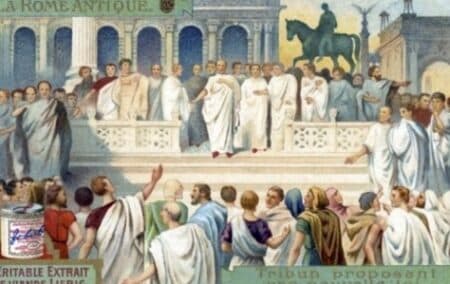The South African Electoral commission, or the IEC as it is popularly known, last week decided that it would be prudent for South Africa to suspend its local government elections in the face of the difficulty of political campaigning under conditions caused by Covid-19 and the associated lockdowns. The IEC argues that Covid-19 will prevent the elections being free and fair.
So, is this a good idea? Well, no. But to understand just how profoundly bad this idea is, we need for a moment to think about why regular elections and the social and political norms that support our democracy are so important.
‘Societal norms’, ‘institutions’, ‘political culture’ – these are all phrases we use to try and capture that spirit of what is perhaps best described in the phrase ‘that’s just how we do things around here’. If it’s a sort of inertia which can contribute to the longevity of tyrannies, it is also vital to the preservation of a free society. After all, one of the best ways to preserve freedom is for its restriction to be as unthinkable to most people as the prospect of gravity suddenly disappearing.
During the writing of their Constitution, some of the American founders argued that one of the benefits of the Constitution was that it would help instill norms across American society as to how government was to relate to its people, and that the longer the Constitution endured without being significantly revised or replaced, the stronger the reverence for and allegiance to the founding document and the principles of liberty it enshrined would grow.
In part, the adoption of the American Constitution was out of a desire to prevent the erosion of the norms which they felt defined their time, and their knowledge of history gave them good reason to fear such erosion.
History is filled with examples of relatively free societies devolving into tyrannical and oppressive ones, and in almost every case it began with the erosion of the norms and values which protected that liberty.
Bullied or pressured
In the Roman Republic, the example which influenced the American founders the most, the process of voting and creating laws was originally very democratic by the standards of the time. Citizens, even from the lower classes, would have space to express themselves and give input on laws. These worked well for a long time. However, over time, at points of great political friction or during national emergencies, these assemblies would be bullied or pressured by increasingly violent tactics.
Every time life would return to normal afterwards, but with violence being slightly more acceptable than before. In the end, the Senate and assemblies simply bent to the will of dictators and emperors while soldiers stood close by, weapons drawn, to remind them of the price of disobedience. What at first was unacceptable became acceptable, and indeed normal, not in one dramatic moment, but in many small steps.
In the end, the authoritarian norms became so entrenched, and so completely replaced the liberal norms, that when the assemblies had a chance to restore the republic many decades later, the memory was so alien that they simply found another autocrat to rule over them – because that’s just how things were done.
Why am I talking about these long-past events in foreign countries? Because they remind us of the price of allowing small, or not so small, erosions of the norms upon which our democracy and free society is based. Unlike the Roman Republic or the early American Republic, South Africa does not have a long history of liberty and democracy. Repression and violence in politics have a long history in South Africa, and it is only with great effort that we find ourselves in 2021 in a society where democratic norms prevail, even if only just.
It is for this reason that we should be extremely cautious about something as drastic as suspending an election, as regular elections are a cornerstone of our democratic norms. Suspending the local government elections will not only damage the practice of regular elections, but likely require either constitutional changes, abuse of legal loopholes or a very generous interpretation of the law by the judiciary.
‘Slippery slope’
And while many excitable internet brainiacs will characterize this argument as a ‘slippery slope’, in politics there is very much such a thing as a slippery slope, because past behaviour is usually used to justify new changes.
You need only imagine how, on the eve of the proposed date for the next election, with Covid being just as bad as it is now, if not worse – as my colleague Gabriel Crouse has argued here – people will make the argument that ‘Well, we’ve already suspended it once, what’s two or three months more?’, or that “Well, look, we suspended the election and nothing terrible happened, why not wait a bit longer just to save a few more lives?’.
These arguments will be made, and it is by these arguments that democracy dies. Indeed, for many years both the ANC and EFF have advocated bundling local government with national and provincial elections. What better time to do so than one in which the constitutional framework has already been disrupted? All the difficult leg work has been done, the courts appeased, and the loopholes found; all it would require is a formalisation of the process by the ANC, EFF and their lackeys in some of the tiny parties.
We disrupt our sacred traditions and norms at our own peril, and as free citizens we should not let this postponement go by without a fight. Join the IRR’s efforts by signing our petition here, and make your own efforts to fight back wherever you are able to. After all, the price of liberty is eternal vigilance.
If you like what you have just read, support the Daily Friend

